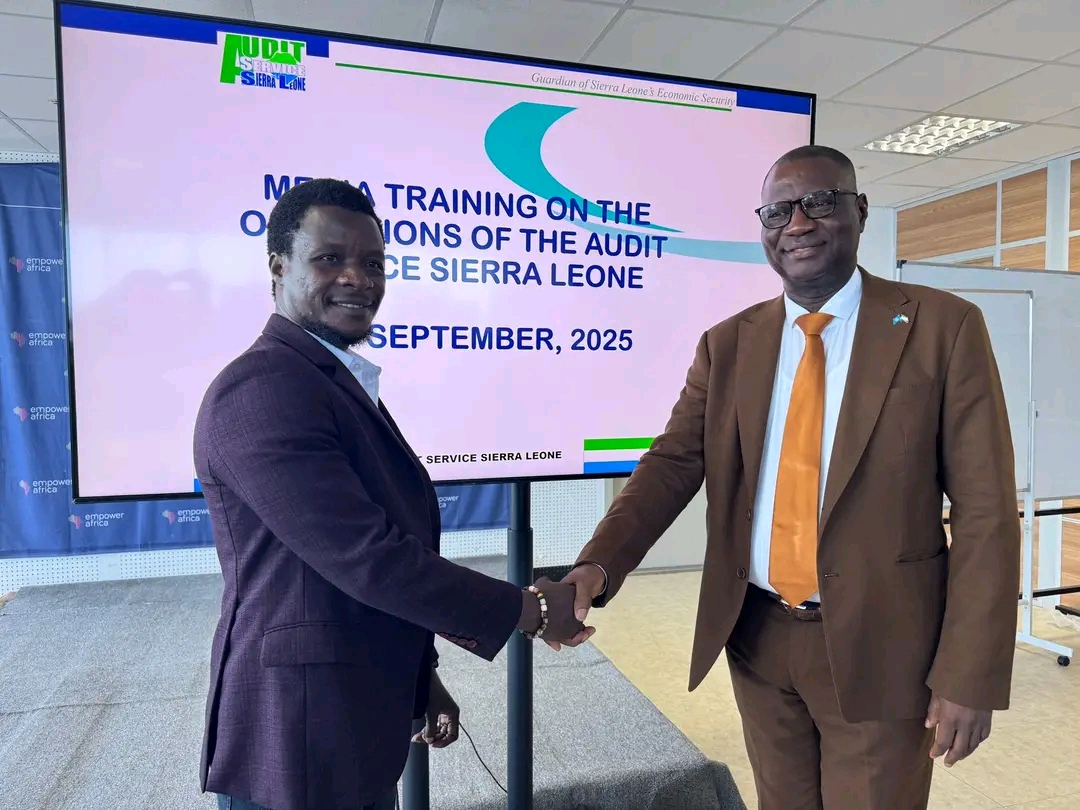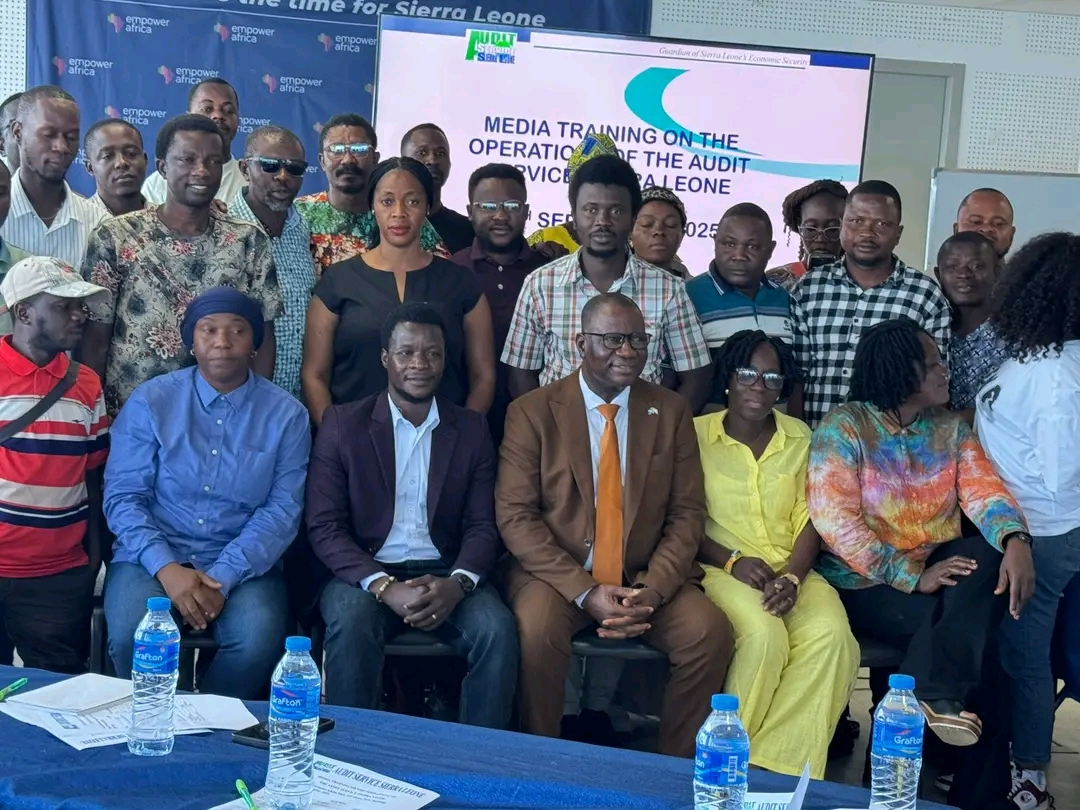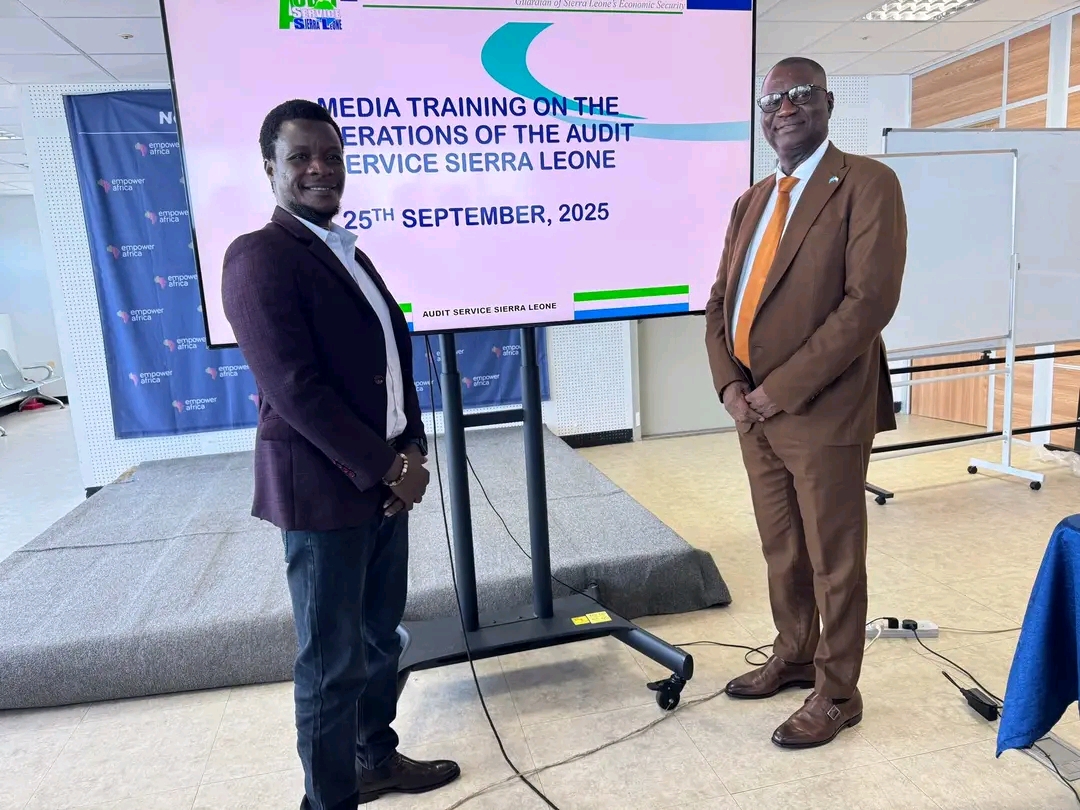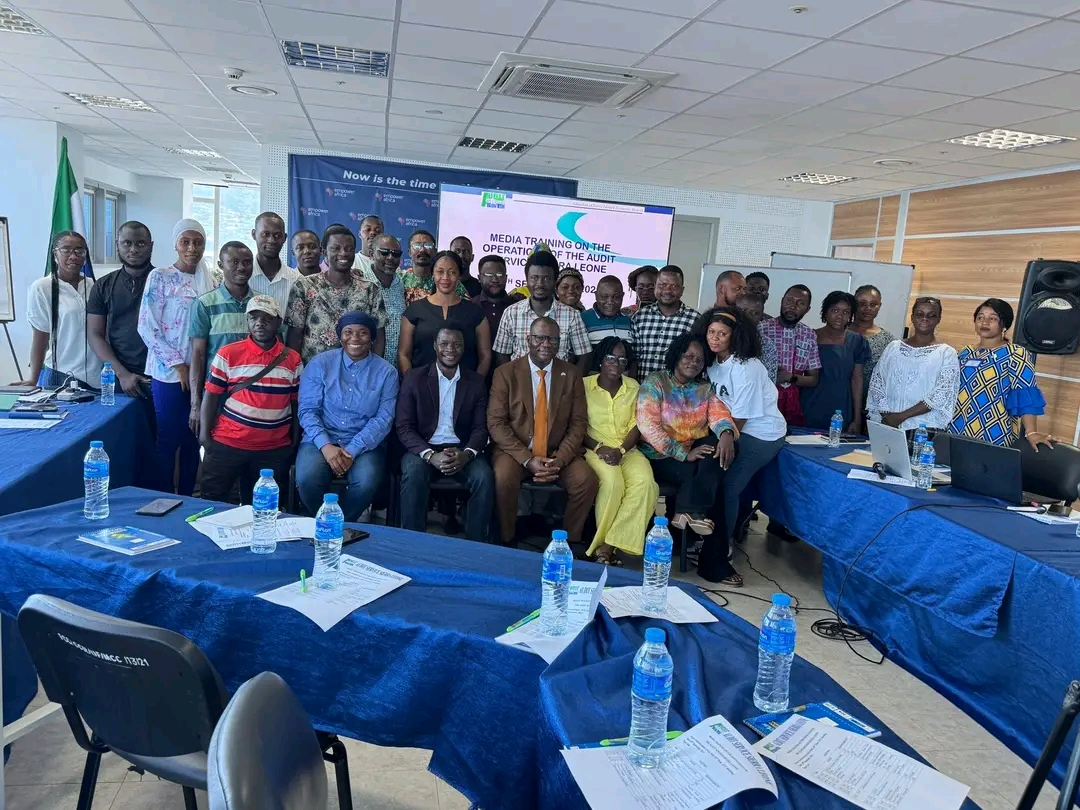SLAJ's President Alhaji Manika Kamara's Remarks at Audit Service SL's Empowerment Training for Journalists in Freetown
Statement by the President of the Sierra Leone Association of Journalists (SLAJ), Alhaji Manika Kamara, at the Opening of the Audit Service Sierra Leone Workshop for Journalists at the Empowerment Hall, FCC Building, Thursday 25th September 2025👇

Courtesies:
On behalf of the Sierra Leone Association of Journalists (SLAJ), let me express our gratitude to the Audit Service SL for organizing this very important workshop for journalists. It demonstrates your recognition of the media as a key partner in promoting transparency, accountability, and good governance in Sierra Leone.
The work of the Audit Service is central to how we build trust in public institutions. By reviewing the use of state resources, auditing government ministries, departments, agencies, and even local councils, ASSL provides the nation with a fair reflection of how public funds are managed. But the true impact of this work depends on how well the public understands and engages with audit findings. That is where we come in as media, and as journalists.

This workshop is therefore about training journalists on the audit laws and processes, as well as empowering the media to play its constitutional role as watchdogs of society, ensuring that the reports and findings of the Audit Service do not remain as technical documents gathering dust on shelves, but are transformed into stories that citizens can understand, debate, and use to demand accountability from their leaders.

Going forward, SLAJ would like to see this partnership between the media and ASSL institutionalized. We call for regular training sessions, not only in Freetown but also across the regions, to strengthen journalists’ capacity to interpret audit reports, follow the audit process, and report with clarity and accuracy. The Audit Service reports are often highly technical; therefore, simplifying them into more accessible formats: with summaries, infographics, or citizens’ versions, will help both journalists and the public engage with them more meaningfully.
It is also important to highlight the broader accountability ecosystem. The work of the Audit Service does not end with the production of an audit report. Its findings must be taken up by Parliament through the Public Accounts Committee, and in some instances, they feed into investigations by the Anti-Corruption Commission. Journalists must understand these linkages in order to track how audit recommendations are acted upon, and to inform the public about whether corrective measures are taken, or whether impunity prevails.
SLAJ is committed to deepening collaboration with ASSL. Together, we can build a stronger culture of accountability in Sierra Leone; one where audit reports spark national conversations, where duty-bearers are held to account, and where citizens feel empowered to demand the responsible use of public resources.

I therefore encourage all participants to fully engage in this workshop, ask questions, and build networks that will help strengthen your reporting. Let us leave here better equipped to serve the people of Sierra Leone through accurate, insightful, and impactful journalism.
Once again, I thank the Audit Service for this initiative, and I assure you that SLAJ will continue to stand as a reliable partner in the journey towards transparency and good governance.
I thank you.
Comments
Post a Comment